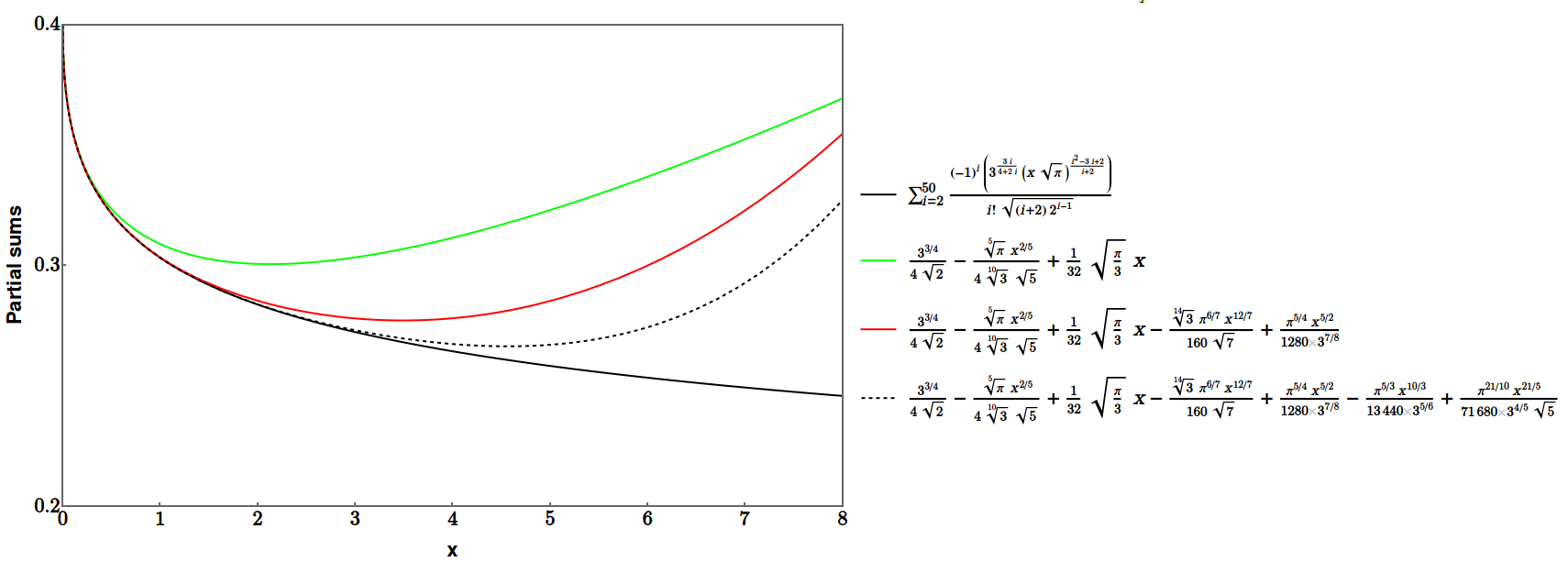Consider the non-negative, integer valued random variable $X$, and its $i^{\text{th}}$ factorial moment $E_{i}[X]$. Then we have that $$ P(X=0) = \sum _{i=0}^{\infty} \frac{(-1)^i E_{r}[X]}{ i!} $$ See e.g B. Bollobás Random Graphs, Corollary 1.13, where this is demonstrated.
If these moments diverge with some parameter $x$ (which they may well do if $X$ counts e.g. subgraphs of a random graph as the number of nodes goes to infinity), for example consider they look like $$E_{i}[X](x) = \frac{ \left(3^{\frac{3 i}{2 i+4}} \left(x\sqrt{\pi } \right)^{\frac{i^2-3 i+2}{i+2}}\right)}{\sqrt{(i+2) 2^{i-1}}}$$
Then, to evaluate $\lim_{x \to \infty} P(X=0)$, we would need the limit of the following alternating sum (I start from $i=2$ as these expressions are only contributions to the moments, but they are all similar. Another contribution will start from $i=0$).
$$ f(x) = \sum _{i=2}^{\infty} \frac{(-1)^i \left(3^{\frac{3 i}{2 i+4}} \left(x\sqrt{\pi } \right)^{\frac{i^2-3 i+2}{i+2}}\right)}{\sqrt{(i+2) 2^{i-1}} i!} $$
So, I am looking at $\lim_{x \to \infty} f(x)$. Here is a plot of the sum and its partial sums.
It appears to be descending, and I know this is non-negative. So it is (in theory) going to zero, so long as it keeps descending?
The limit of the sum is difficult as most methods I can see don't involve sums of terms that diverge as $x \to \infty$. I can't swap the sum and the limit, for example, as one cannot with the limit of $e^{-x} = \sum_{i=0}^{\infty}\frac{(-1)^i x^i}{i!}$.
The main idea I can see is to try and upper bound the sum, and show that upper bound goes to zero, but does that mean I need to "upper bound the even (and so positive) terms, and lower bound the odd (and so negative) terms"? Does anyone have any advice on how to calculate $\lim_{x \to \infty} f(x)$?

